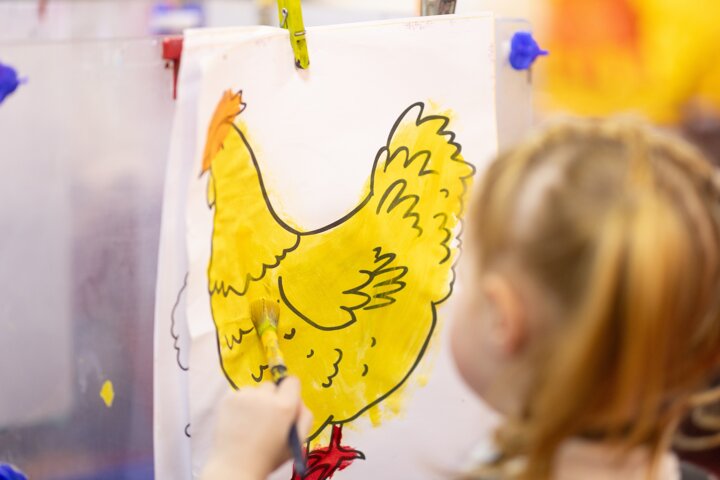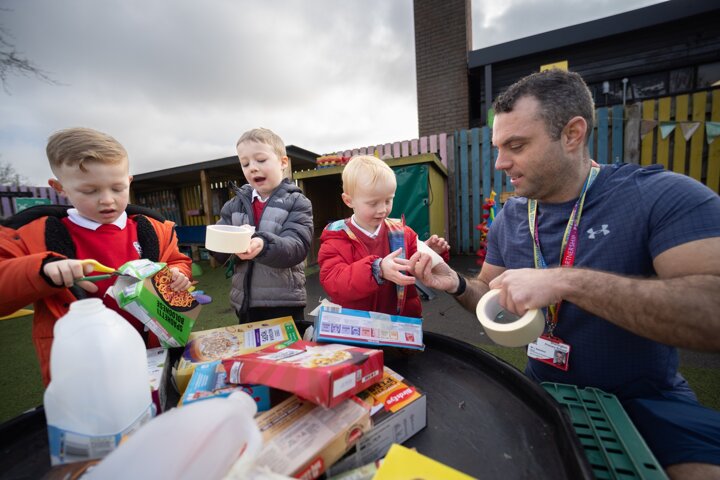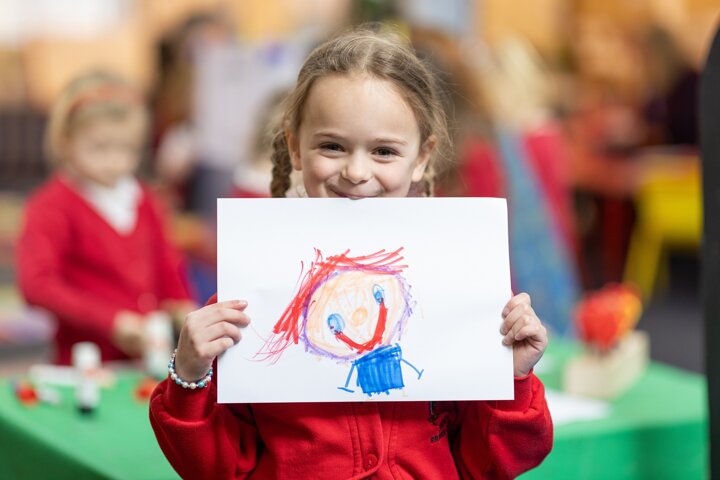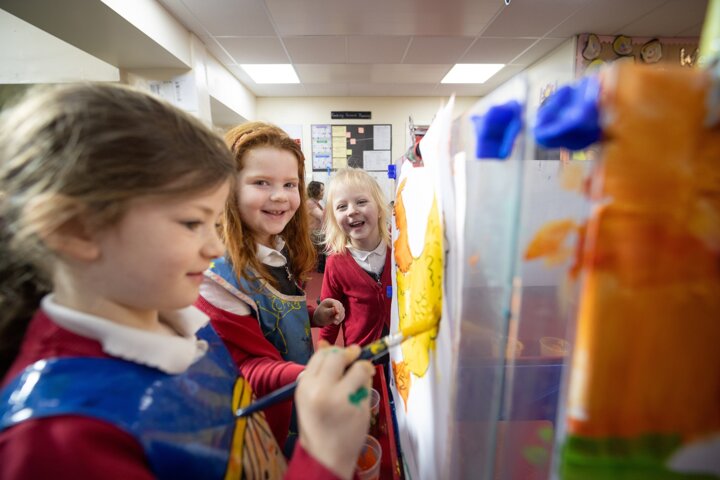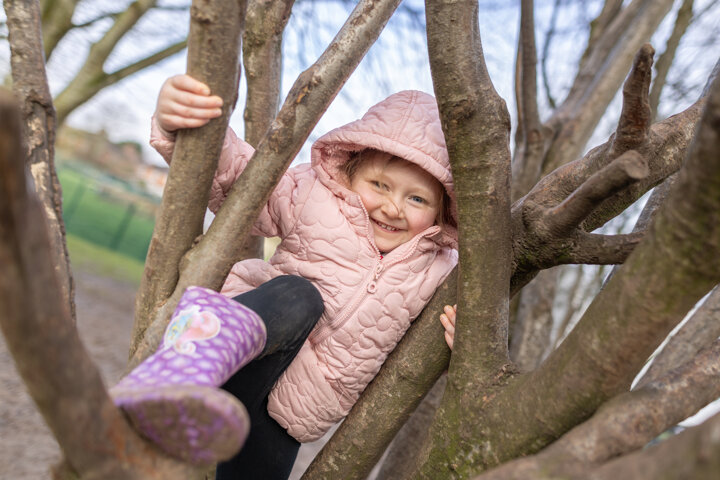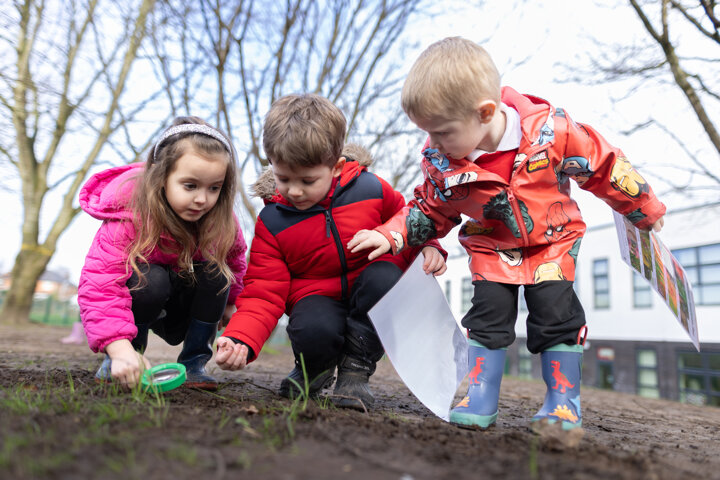Our Intent for Early Years
-
For our pupils to settle quickly, feel happy and see themselves as valued members of our school and local communities.
-
For pupils in Nursery and Reception to start to develop the ability to self-regulate, manage emotions, listen and communicate needs and wishes in order to learn.
-
To use play to develop their own preferences and decision making. To have opportunities to choose what learning activities to engage with and to drive their own exploration.
-
To start to develop a sense of independence and resilience as learners. To try hard, reflect upon who or what might help and then try again.
-
To be able to talk about their learning and be proud of their achievements.
-
To work with parents to create mutually supportive relationship that involves parents in their child’s learning and creates a partnership between school and home that will benefit children for the duration of their time at Shavington.
-
To have a secure understanding of early phonic knowledge and skills in order to make a good start on their journeys as readers and writers.
-
To have a secure understanding of counting, quantities, be able to sort and compare in order to make a good start on their journeys as mathematicians.
Our Implementation for Early Years
We follow the Early Years Statutory Framework for the Early Years Foundation Stage, updated September 2021, by the DfE. This framework specifies the requirement for learning and development in the Early Years and provides prime and specific areas of learning we cover in our curriculum. We encourage active learning to ensure the children are motivated and interested. We take time to get to know children’s interests and their likes to support learning.
All areas of the EYFS curriculum are planned for to ensure there is a broad, balanced and progressive learning environment and curriculum. The children will learn new skills, acquire new knowledge and demonstrate understanding through the seven areas of the EYFS curriculum:
- Personal, Social and Emotional Development
- Physical Development
- Communication and Language
- Literacy
- Mathematics
- Understanding the World
- Expressive Arts and Design
Each area of learning is implemented through planned, purposeful play, and through a mix of adult-led and child-initiated activities. They are supported through a well-resourced inside and outside environments and staff that can interact skilfully to challenge and develop children’s skills. Children have opportunities to direct their own learning through choosing where, how and with whom they play. This approach allows the children to develop their skills through supporting the characteristic of effective teaching and learning:
- Playing and Exploring
- Finding out and exploring
- Playing with what they know
- Being willing to ‘have a go.’
- Active learning
- Being involved and concentrating
- Keeping trying
- Enjoying achieving what they set out to do
- Creating and Thinking Critically
- Having their own ideas
- Making links
- Choosing ways to do things
We associate these characteristics of learning with our Building Learning Power animals. For example, the ant encourages us to work and problem solve with others, the rhino encourages us to take risks, persevere and focus on a task. The tortoise helps us to reflect and evaluate what we have learnt, the beaver encourages us to explore, be methodical and resourceful in our approach to challenges. Our approach to learning in the Early Years allows for plenty of opportunities for our pupils to develop these attributes.
At certain parts of the day children will be taught as a whole class, a small group or individually. In Reception all children will have short, structured daily phonics, literacy and maths lessons. Take part in small group work to develop their mathematical and writing skills. Each week children are heard read by a teacher, as well as having other opportunities to practice their early reading skills. Handwriting and PE are taught in specific lessons, but are also supported by environmental opportunities and activities. We use our literacy texts and the children’s interests as a basis for learning in all areas. Our Nursery children have a short practical phonics and maths sessions daily with the focus very much of exploring and playing whilst developing early skills.
As children mature and as their development allows, the balance gradually shifts towards more adult-led and independent activities to help children prepare for more formal learning, in year 1. We work closely with staff from Year 1 and prepare the children for the transition by allowing them to become familiar with the staff and the environment and ensuring the environments are similar at the end of EYFS and the start of Year 1.
Observations and ongoing professional discussions between staff allow us to assess children's progress and inform the next steps in their learning. We notice their interests and needs and use this, along with our curriculum plan, to inform future teaching and provision.
All children in Reception are assessed using the Reception Baseline Assessment with in a few weeks of starting school. As well as this, summative assessments are made 3 times are year in October, February and in June. Observations by teachers and teaching assistants, and information shared by parents/carers are used to judge if the children are on track to meet their developmental checkpoints (Nursery) or Early Learning Goals (Reception) or not.
We regularly share with parents what their children are learning and how they are progressing. We also invite parents to celebrate their children achievements throughout the year with events such as Christmas Nativity, class assemblies etc. We support parents by holding information evenings before their child joins our Nursery and Reception Classes. They are also invited to subject specific workshops designed to help them to support their child. For example; phonics workshops, maths evenings etc.
Our Impact for Early Years
We measure the children’s development formally by assessing them against the Early Learning Goals at they are as set out in the Early Years Framework. These judgements are moderated internally and with external practitioners. The assessments are shared with parents and Year 1 staff as part of the transition process.
We endeavour for pupils to be ready for Year 1 and have begun to be demonstrate our building learning power attributes in their approach to learning and life.
The impact of our curriculum is also be measured by how effectively it helps our pupils to have established themselves in our school community and how they have developed into well rounded individuals. We want them to be excited and enthusiastic learners ready continue their lifelong learning.
